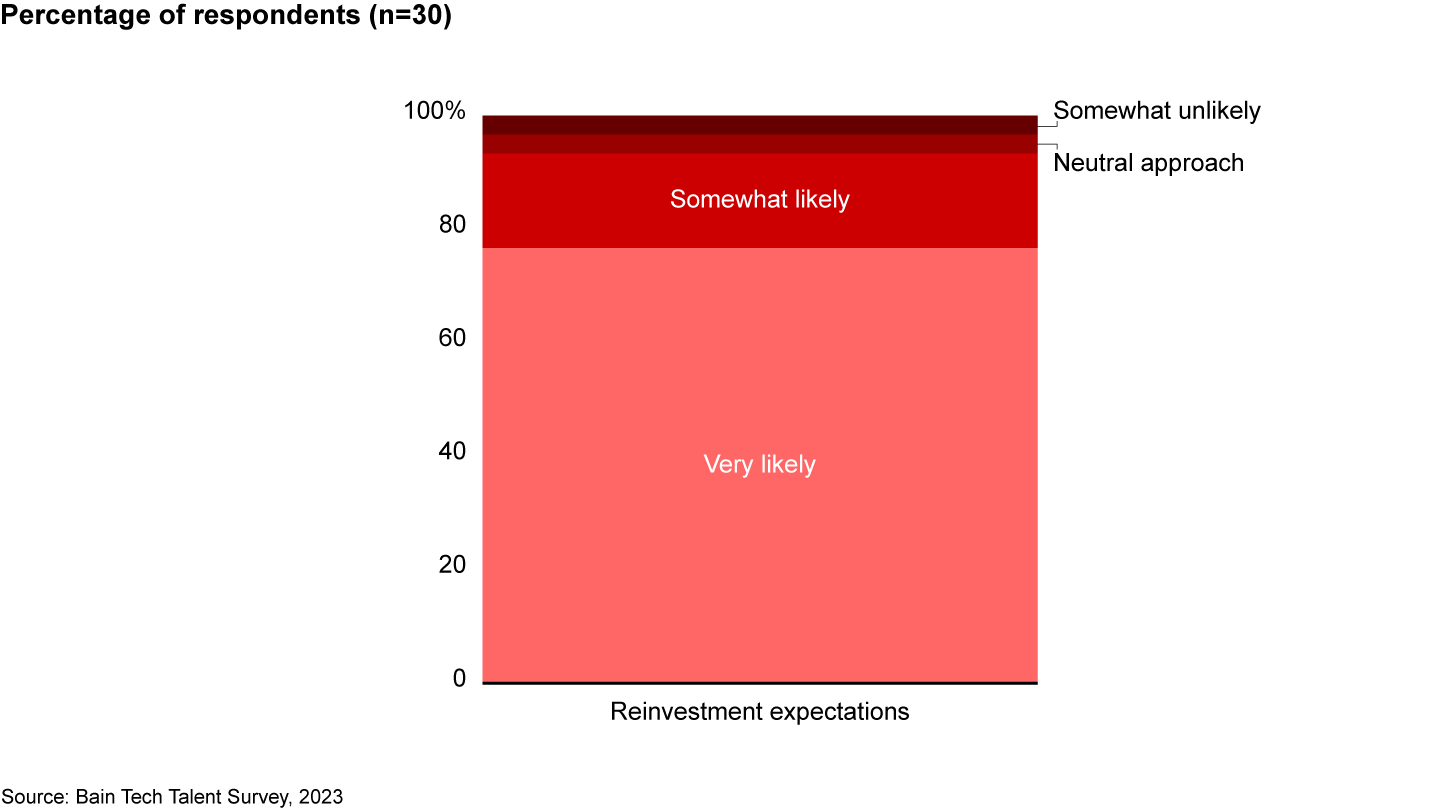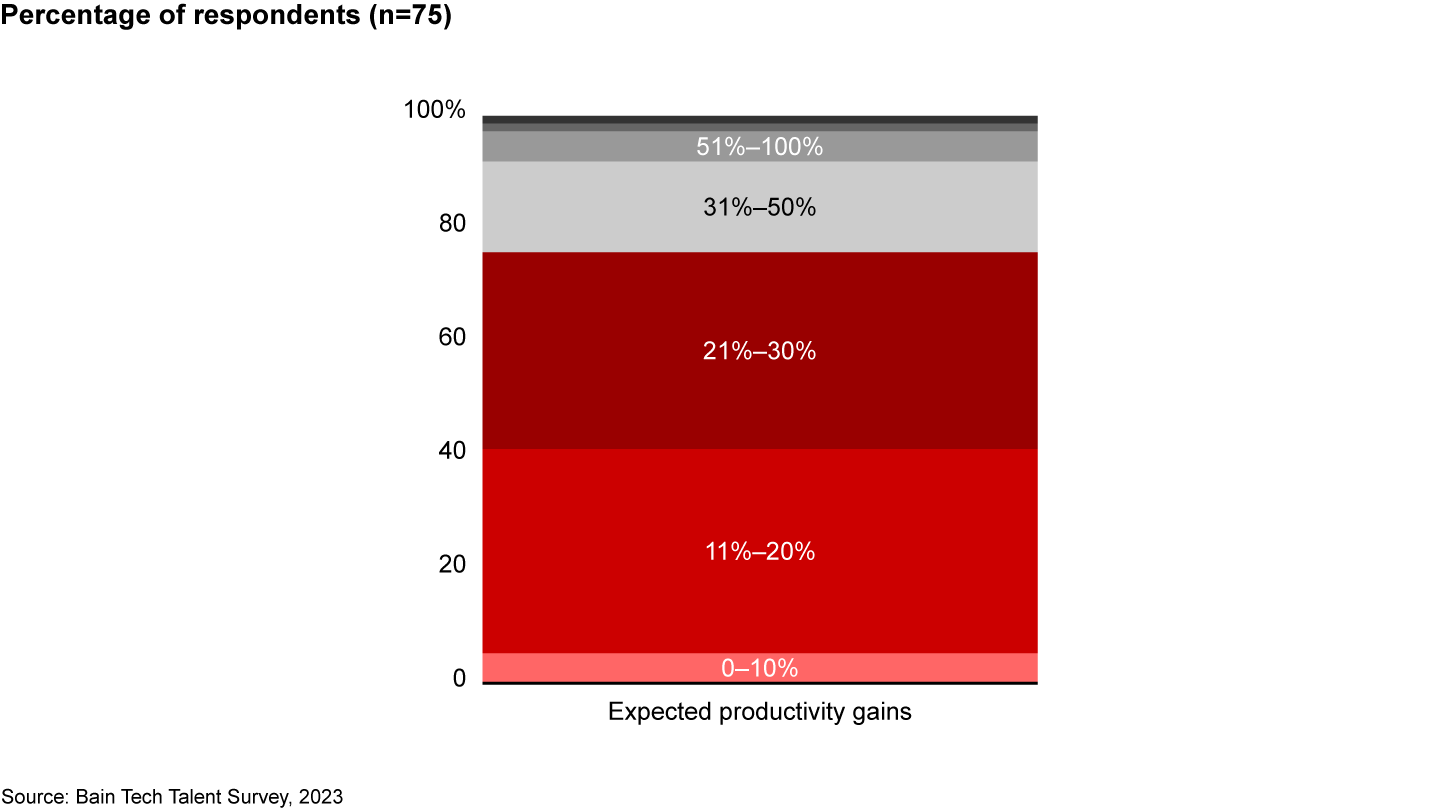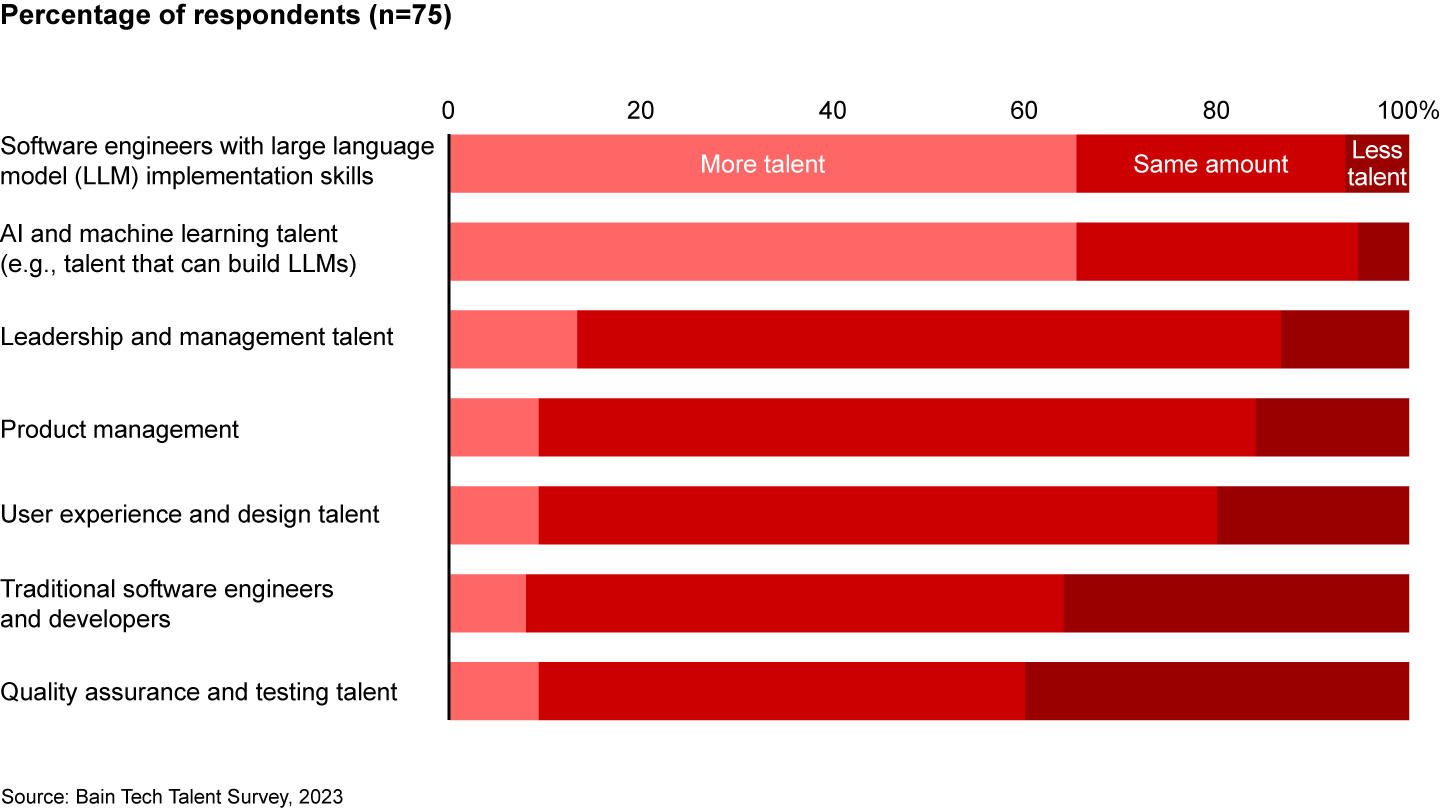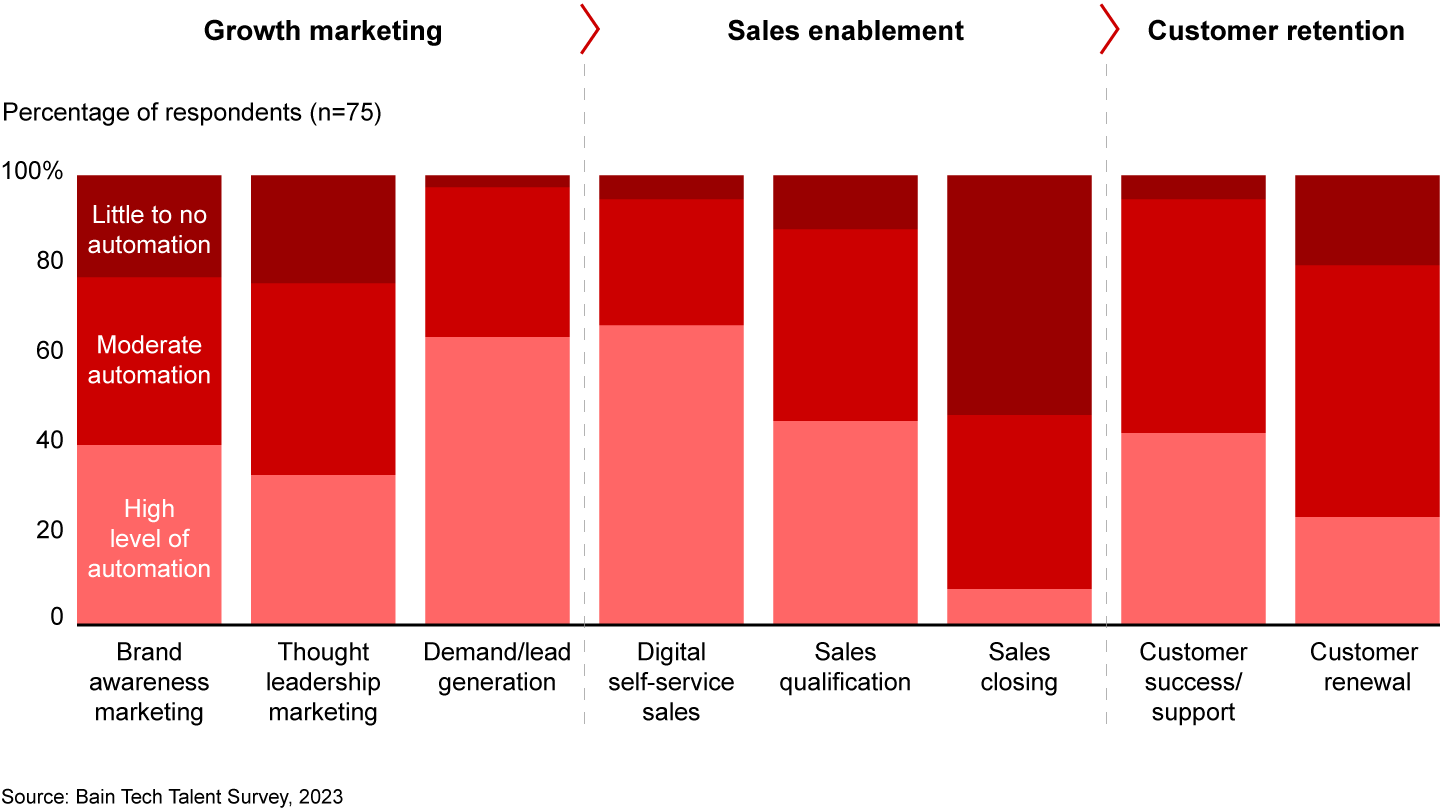Technology Report
 }
}
한눈에 보기
- Artificial intelligence (AI) will change the software industry, particularly the engineering and sales and marketing functions.
- Nearly two-thirds of software engineers say that they expect productivity gains of 20% or more, and many are already deploying AI coding assistants.
- About 39% of software companies said that the biggest barrier is the lack of technical skills, so an early investment in upskilling talent could offer a competitive edge.
- AI will also help automate sales to smaller businesses and consumers, allowing for smarter self-service.
This article is part of Bain's 2023 Technology Report.
Artificial intelligence (AI) promises to improve productivity across industries and business functions, with some estimating that about 20% of all work tasks could be completed faster and at equal quality with assistance from generative AI.
In the software industry, engineering and go-to-market (GTM) functions are among the areas most likely to benefit from AI over the next 18 months. The technology will change how work gets done and also the mix of talent and skills necessary to make it happen.
Because these productivity gains are accessible to every company, they are unlikely to make technology companies structurally more profitable. Firms will instead likely feel the competitive pressure to use productivity gains to build new product—and build it faster, in order to keep up with or outcompete the market. While a small portion of AI productivity gains may flow to the bottom line, most is likely to be reinvested in the business (see Figure 1).

More productive engineering teams
Software engineers see potential for generative AI in comprehending, developing, testing, and documenting code, as well as improving data quality and building user stories that articulate how a feature will provide value. About 57% of the software engineers we surveyed said that they anticipate 20% or better productivity gains from generative AI use cases over the next two years (see Figure 2).
To take advantage of AI and its productivity potential, companies will need to integrate commercial large language models (LLMs)—or in certain cases develop their own LLMs. About 39% of those surveyed said that the biggest barrier to benefiting from AI is a lack of technical skills—especially AI language model training, engineering chains of AI model prompts, machine learning model testing and operations, and data engineering of unstructured data assets. Some of these skills are new capabilities, so an early investment in helping employees develop these skills should be a near-term focus for companies.
As companies seek out the necessary capabilities, their talent mix is likely to shift. They will need more engineering talent for AI and machine learning, particularly with experience building or integrating LLMs. Since these are comparatively new skills, scarcity is likely to continue for some time, underlining the importance of upskilling the existing workforce. The outlook for other engineering roles may remain the same as or less than today (see Figure 3).


More automated sales and marketing
Generative AI will change the way that companies market and sell their products and services as it enables significant automation across every step of the customer life cycle. In particular, demand and lead generation, digital self-service sales, customer success, and other support activities all have the potential to benefit from the types of automation that generative AI enables (see Figure 4).
Among the GTM executives we surveyed, 64% believe that consumer sales will see a significant amount of automation over the next two years, partly because they are less customized. Automation in business-to-business sales will vary by segment, but 40% of GTM executives see lots of potential for automation in sales to small and medium businesses. More complex sales at the midmarket and enterprise levels are less ideal for automation, although one-third of the GTM executives surveyed expect to see high levels of automation here, too. More than half of the GTM executives we surveyed believe that generative AI may enable them to serve some customers with a lower-touch or self-service model, ultimately reducing the number of customers served by a more manually intensive, bespoke enterprise effort.

No company can afford to sit back and watch how its competitors and vendors deploy generative AI. The rapid adoption of this technology is changing the basis of competition, and senior leaders should be acting now to understand its strategic implications. Most companies will need to invest significantly in talent to take advantage of generative AI, hiring new engineers and improving the capabilities of their current workforce. Executives will also need to decide how to distribute resources across key areas such as security, data platforms, and experimentation teams, and they will need to find the right balance of investment across customer-facing uses and internal productivity. Making key decisions now will help firms find, train, and retain the talented people they will need to support the evolving generative AI–enabled business model.
Read our 2023 Technology Report



